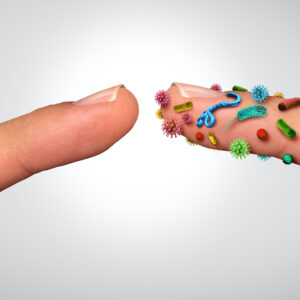These are infections that usually lead to rashes and blisters on the skin, and in many cases, they are painful. It may affect the skin and other systems within the body; when this happens, it is usually defined as systemic internal shingles.
Internal kinds can affect a wide range of organ systems and show distinctive symptoms.
Symptoms and signs of internal variant
The variant that occurs on the skin can have many common symptoms similar to the internal variant including:
- Lymph nodes swelling
- Burning and itching sensation
- Pain
- Tingling and numbness
- Chills
- Muscle aches
Besides these symptoms, the internal type shows other symptoms depending on which system within the body has been widely affected. Some of the organs that can be affected are the brain, liver, lungs, nervous system, and eyes. When this disease affects the organs within the body, it causes serious issues that need immediate medical attention.
Cause of the internal variant
It is caused by a virus known as varicella-zoster, the same virus that leads to chickenpox. When chickenpox dies down, the virus embeds itself in particular tissues and nerves within the nervous system and remains inactive. The virus can become active again in the future and manifest in the form of shingles on the skin. When the rejuvenation of the virus becomes severe, it may affect organs within the body, referred to as the internal variant.
Risks that can lead to the internal variant
Weak immune system
Conditions and diseases, including organ transplant, HIV/AIDS, and autoimmune conditions such as inflammatory bowel disease, rheumatoid arthritis, or lupus, can make a person vulnerable because the immune system is weak.
Receiving certain medications
Certain medications such as those that reduce chances of rejection during organ transplant and ones that control autoimmune diseases increase the chances of occurrence. Examples may include tacrolimus and cyclosporin. Continuous use of steroids also increases the chances of the occurrence.
Old age (over sixty years)
The occurrence may affect a person of any age, but people over sixty years have a higher probability of contraction because they tend to have lower immune systems.
The vaccine is very helpful in preventing the disease, and not receiving it can increase the probability of it occurring. Even when someone has a foggy memory of ever contracting chickenpox, it is always prudent to receive the vaccine. Research claims that 99% of people above forty years have already contracted chickenpox. There is no age limit for receiving the vaccine.
Is it communicable?
It is ordinarily infectious to people who have never contracted chickenpox. An infected person can spread the disease to other people until the blisters are scabbed, and no new blisters are forming. Therefore, people who have contracted it should uphold good hygiene and cover their scars as much as possible to reduce the risk of it spreading. They should also take the medication that is prescribed to them by medical practitioners.
Diagnosis
The doctors can analyze the symptoms like many other diseases to come to a conclusion. The patient should be able to note the period the signs have been visible and their seriousness. If the symptoms affect more than the skin, the doctors may conclude that a patient has an internal variant.
Here are some of the tests that doctors perform to diagnose the disease:
- Virus culture
- Polymerase chain reaction
- Direct fluorescence antibody test
- Treatment of internal variant
Many viruses do not have medications, but this is a unique case because their antiviral prescription is available. Therefore, it is prudent for a person suspecting they have the virus to seek medical attention because early treatment reduces the chances of complications.
Here are some of the antiviral medications that are used for the treatment of the virus:
- Famciclovir (Famvir)
- Valacyclovir (Valtrex)
- Acyclovir (Zovirax)
Shingle rashes are usually irritating, and when scratched, they may lead to blisters prolonging and scarring. A person may resort to using shingles ointment. The shingles ointment may not help treat the shingles, but it may make the condition bearable. Medical practitioners usually recommend the best ointment for shingles in many cases.




